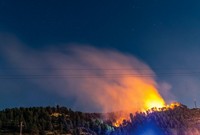Advertisement
Grab your lab coat. Let's get started
Welcome!
Welcome!
Create an account below to get 6 C&EN articles per month, receive newsletters and more - all free.
It seems this is your first time logging in online. Please enter the following information to continue.
As an ACS member you automatically get access to this site. All we need is few more details to create your reading experience.
Not you? Sign in with a different account.
Not you? Sign in with a different account.
ERROR 1
ERROR 1
ERROR 2
ERROR 2
ERROR 2
ERROR 2
ERROR 2
Password and Confirm password must match.
If you have an ACS member number, please enter it here so we can link this account to your membership. (optional)
ERROR 2
ACS values your privacy. By submitting your information, you are gaining access to C&EN and subscribing to our weekly newsletter. We use the information you provide to make your reading experience better, and we will never sell your data to third party members.
Environment
It’s time for better stewardship of our planet’s resources
by Bibiana Campos Seijo
May 6, 2018
| A version of this story appeared in
Volume 96, Issue 19
Almost exactly two years ago I wrote an editorial titled “The Vulnerability of Nuclear.” In the piece I commented on the devastating nuclear incidents that had happened in Chernobyl, Ukraine (then part of the Soviet Union), in 1986 and Fukushima, Japan, in 2011. Both crises had a high human and environmental cost, but they seem to have impacted the energy policies of Russia and Japan in very different ways, if at all.
Russian energy policy does not appear to have changed significantly, and the country continues to invest in the production of nuclear energy. According to data from the U.S. Energy Information Administration dated July 2015, Russia is the third-largest generator of nuclear power in the world and the fourth in terms of installed nuclear capacity. With nine nuclear reactors coming on-line between 2016 and 2020, Russia is the second country in the world, after China, in terms of the number of reactors under construction.
By contrast, the 2011 catastrophe left obvious scars in the Japanese psyche, and the country’s energy policy has changed drastically. So much so that the country has done a complete U-turn in terms of energy source of choice, and it is back to burning coal in a big way.
According to an article published in Science, Japan has opened at least eight coal power plants in the past two years and has no intention of stopping there: It plans to build another 36 over the next 10 years. Meanwhile, nuclear power generation has been deemphasized: All of Japan’s 54 nuclear reactors were shut down after the crisis, and only seven have reopened. This new interest in coal puts Japan at risk when it comes to its commitment to meeting targets for reduction of greenhouse gases, and of course, it also has implications in terms of environmental impact.
This is disappointing and a step in the wrong direction. The World Health Organization just reported that air pollution is responsible for the deaths of 7 million people each year. That is the size of the population of Hong Kong. We cannot continue to ignore this problem. It affects not only those who are most vulnerable—communities in low-to-middle-income countries—but all of us. Although in the developed world we may not record so many casualties, in certain high-income regions—European cities such as London or Paris, for example—air pollution is taking two months to two years off people’s lives on average.
The bad news is that Japan is not alone. Russia is investing in “clean” nuclear energy, but the country’s environmental record is nothing to be proud of. Other countries are also making moves in the wrong direction in terms of energy production and its environmental impact. The U.S., for example, has gone back on its commitment to the Paris Agreement to combat global warming, is decreasing its investment in renewables, and is rolling back other long-standing policies designed to reduce air emissions of hazardous substances.
Advertisement
These shifts will not happen without resistance. The international community has expressed concern, and in the case of the U.S. there is also dissent internally. States such as California, New York, and others have indicated they will oppose these measures. Only last week, for example, 18 U.S. states launched a legal challenge to the Environmental Protection Agency’s plan to weaken greenhouse-gas emissions standards for cars and light trucks and limit each state’s ability to set its own rules.
I am afraid history will not look back on us kindly. Good stewardship of the resources this planet offers us is the most crucial issue of our era. Each generation should strive to do better than the previous. What kind of legacy are we leaving for our children?
Views expressed on this page are those of the author and not necessarily those of ACS.




Join the conversation
Contact the reporter
Submit a Letter to the Editor for publication
Engage with us on Twitter